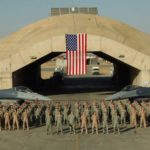9/10
I’m still talking around 9/11 as I write this series of posts. I am worried that any effort I put into converting my experience into words will diminish that experience.
Perhaps that’s what I see most of all in the Congressional records one year after 9/11. Below are bits and pieces from a joint session of Congress, held in New York, on the one-year anniversary of 9/11, where most everyone, except maybe Paul Wellstone, talks around 9/11.
The Hon. Bill Luther of Minnesota misdescribed the reasons for the attack on 9/11. Luther claimed that
[T]he tragedy of September 11 is a stark reminder of the dangerous world in which we live and the risks faced by people who are firmly committed to democracy, freedom and opportunity for all, as we Americans are.
I don’t know that I ever believed that “they hate our freedoms.” It seems to me that they hate the way our freedom to act, internationally, threatens their way of life. We threaten their way of life sometimes very literally, in an age of drone strikes, and sometimes indirectly, as we try to shape nations to suit our needs for natural resources and cheap trade.
Luther is also serving as a funhouse mirror as he reflects on the national mood and behaviors after 9/11. He draws our attention to what he calls
the amazing acts of bravery, kindness and self-sacrifice that took place on September 11.
He lists the actions toward which he is pointing:
[C]itizens helped each other, firefighters risked their lives to save those of others, Americans participated in food and blood drives and other efforts across the country.
Sure. It’s just that these acts of kindness are not exhaustive; we did some less kind things. Some of the less kind acts to follow 9/11 just ended with the last planes from Afghanistan.
Hon. Betty McCollum of Minnesota, at least, remembered the soldiers, asking us not to forget them:
Let us also not forget the men and women in our Armed Forces who today are engaged in a campaign against terrorism, fighting to protect our freedom and seeking justice against those who attacked us. Their valor is a testament to the will and resolve of our great nation.
Hon. Gil Gutknecht similarly invokes the troops and beats the drums of war:
On September 11, 2001, our generation met its challenge. The attacks against innocent Americans were acts of war. We are still fighting that war.
Carl von Clausewitz said that the goal of any military encounter is to destroy the enemy’s will to fight.
To Gutknecht, America has basically been in an ongoing war to protect democratic values.
We will continue to be the shining beacon of liberty. We are willing to bear the price of defending the principles of freedom, justice and honor. We are Americans, and proud to be so…
We have never given way to despots and madmen in the name of artificial peace.
More than 48 million men and women have served in our Armed Forces to do the right thing … We shall not falter, we will rise to the challenges. And, in the end, we will leave to future generations a safer planet because we never failed to defend the freedom we cherish. We will continue to practice what we preach.
God Bless America.
If 9/11 (and Afghanistan) exists alongside WWI and WWII and all our other wars, something about the uniqueness of the event is lost, although something justifiable is made of military actions afterward.
Hon. Paul D. Wellstone of Minnesota turned our attention toward mental illness and trauma.
Bless him, Paul Wellstone recognized that the trauma of the event wasn’t yet over.
Many of us still feel the shock and the fear of that day, and while we can take great pride in the ways in which our country has recovered, we know that for many, the grief and the trauma is still sharp and constant. We know more about how such events can leave scars on the psyche of a country, as well as individuals. We know that many who had suffered from mental illness prior to September 11 may find they need treatment again. We know that many in New York and other parts of our country are suffering from post-traumatic stress disorder. We show our strength as Americans when we respond not only with our strength and outrage toward the perpetrators of this horror, but also with compassion and support toward the victims.
I appreciate that Wellstone didn’t make victims and survivors into heroes, and I appreciate that he didn’t pretend that their suffering, our suffering, was over.
…
When I think about how I respond, even today, to the pandemic, I know it’s conditioned by how we, I, responded to 9/11.
On the day it happened, my classes were announced as canceled at noon. I was already on campus — I was a graduate student, not a whole lot of other places to go. So I wandered into the dark, windowless classroom in which I taught public speaking, and I turned on the lights and sat there, presuming that at least some students would still turn up. Even if they knew that class was canceled, they might still turn up.
And they did, and we didn’t hold class, in the way you might — we didn’t pretend everything was normal. But we met, we talked, about the events.
“Dave: Be present, as best you can.” That was my thinking then. Life is sometimes bigger than we understand, bigger than we can fix. In circumstances I can’t control, the best I can do is be present.
If I am present, we can work through things together, and the troubles will eventually pass.
The pandemic isn’t passing as quickly as (at the time) it felt like 9/11 passed. But hopefully we are present to each other.
Recommended Links:
Leave a Comment
Only registered members can post a comment , Login / Register Here














No Comments